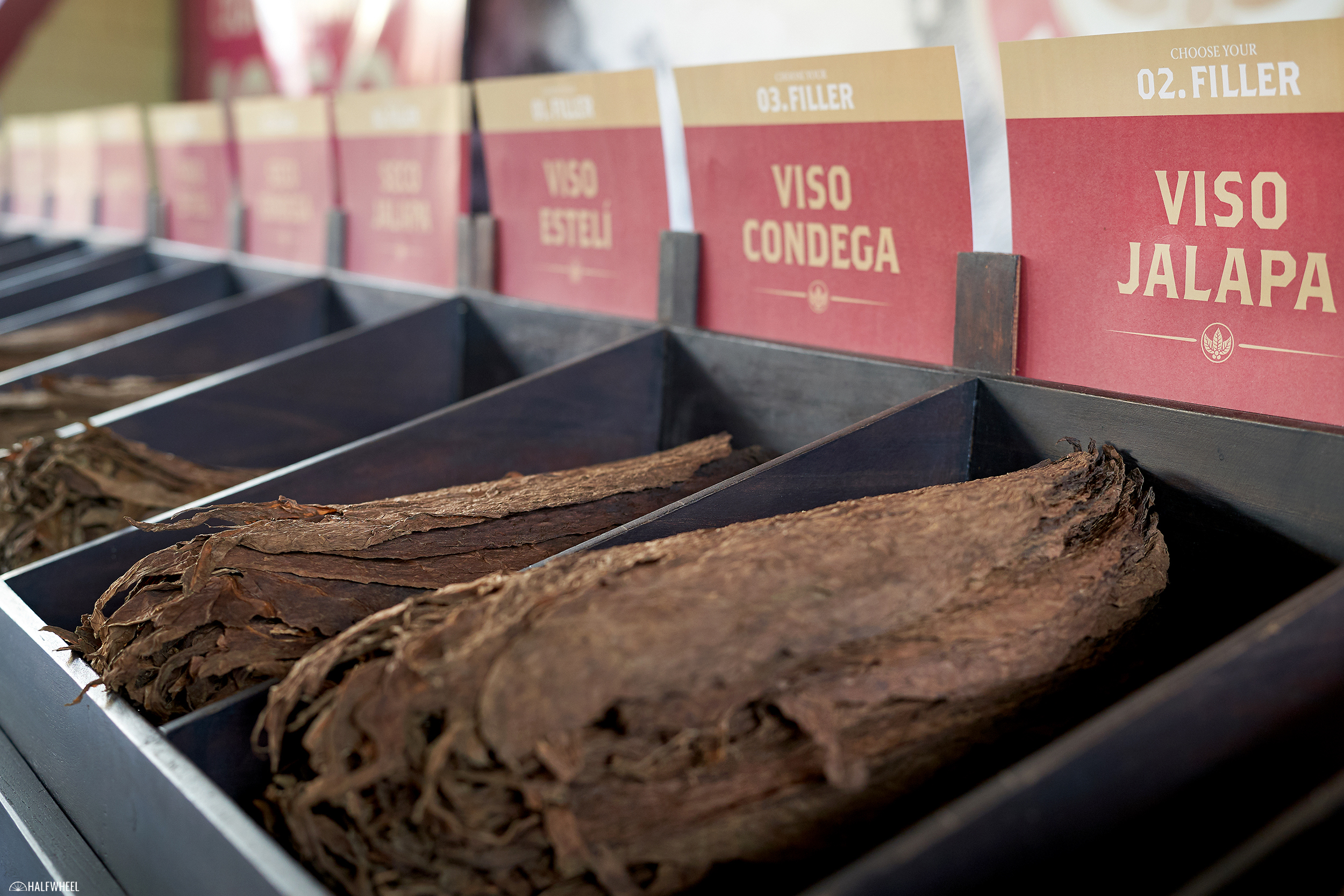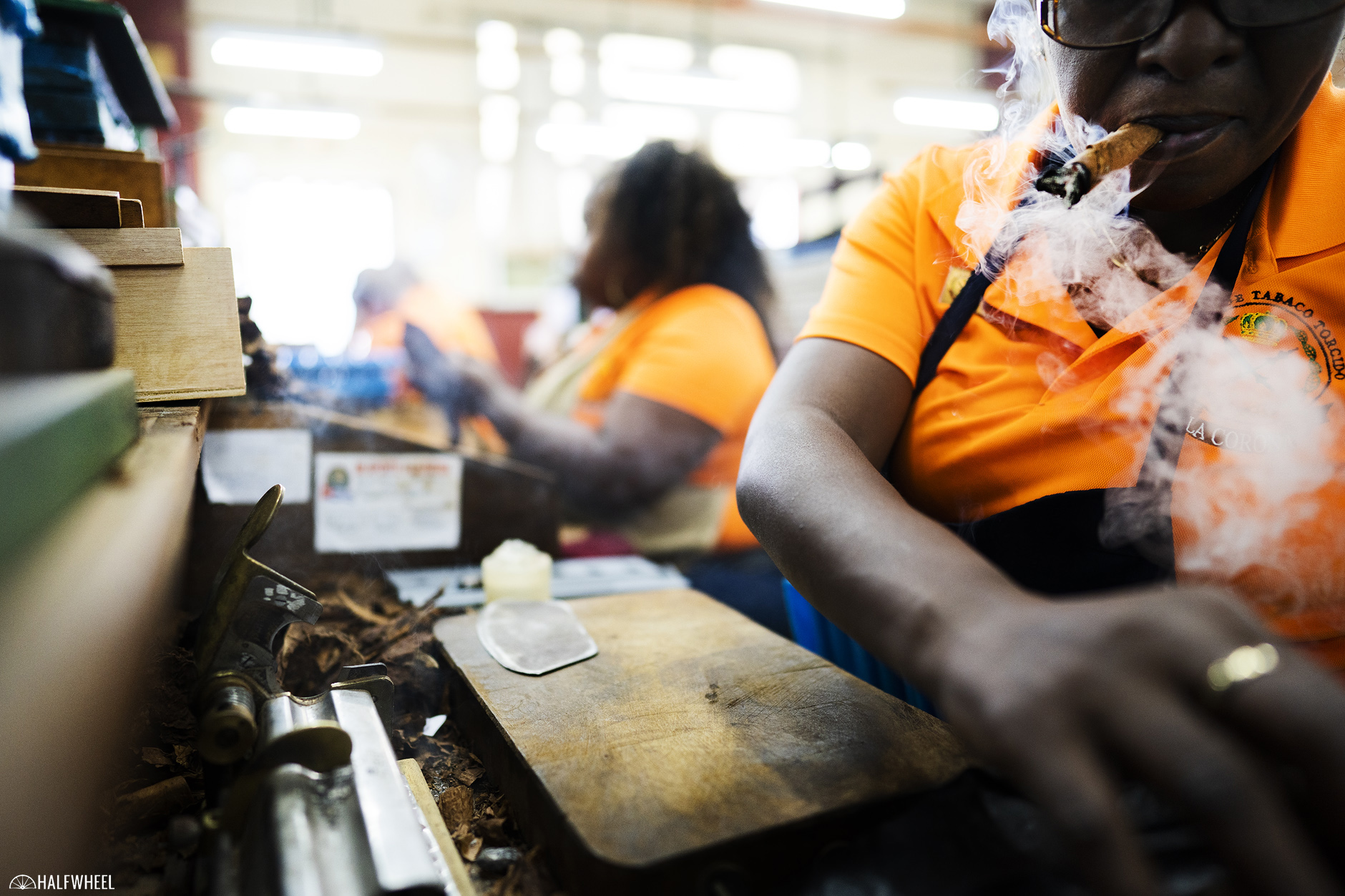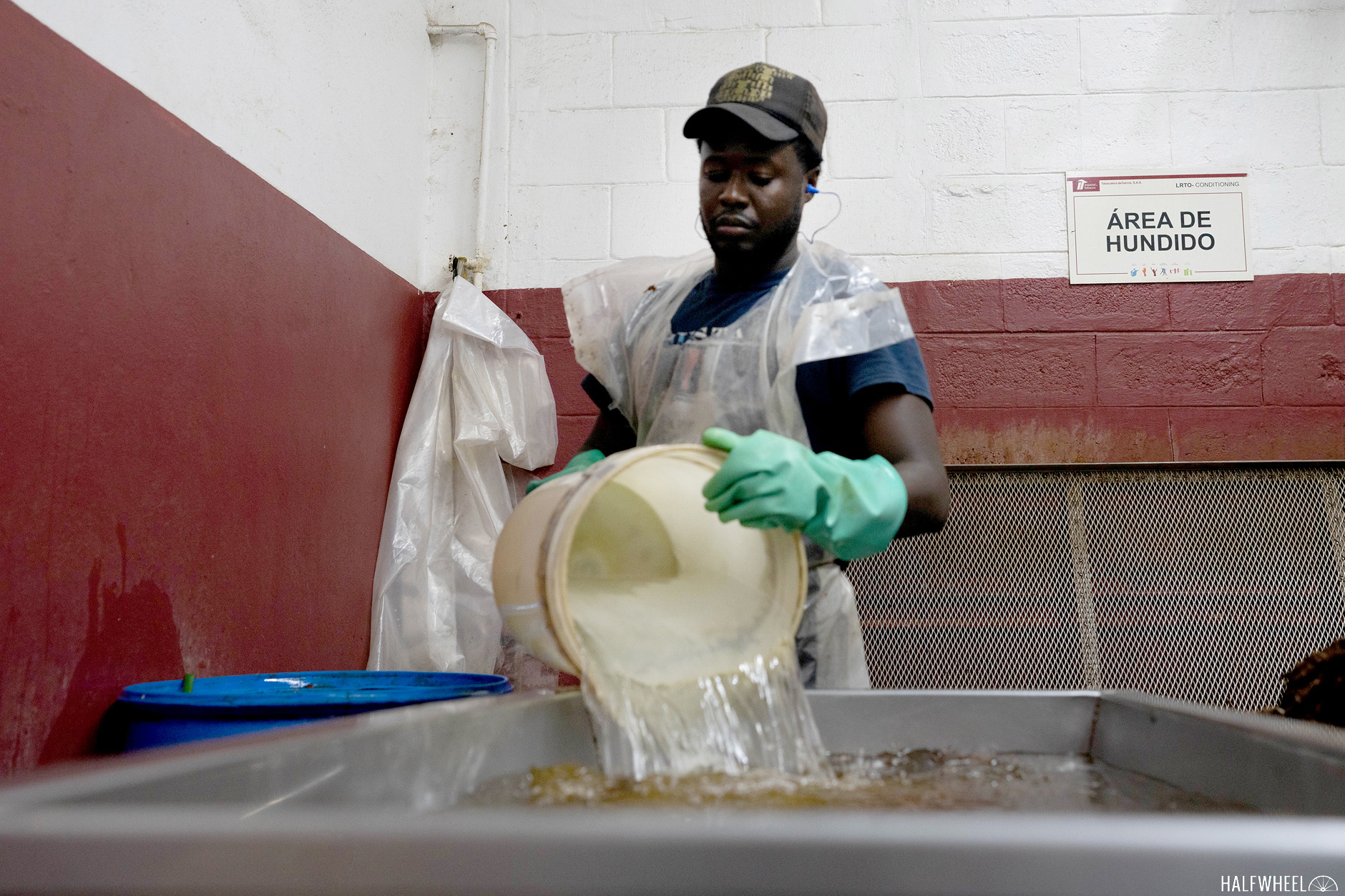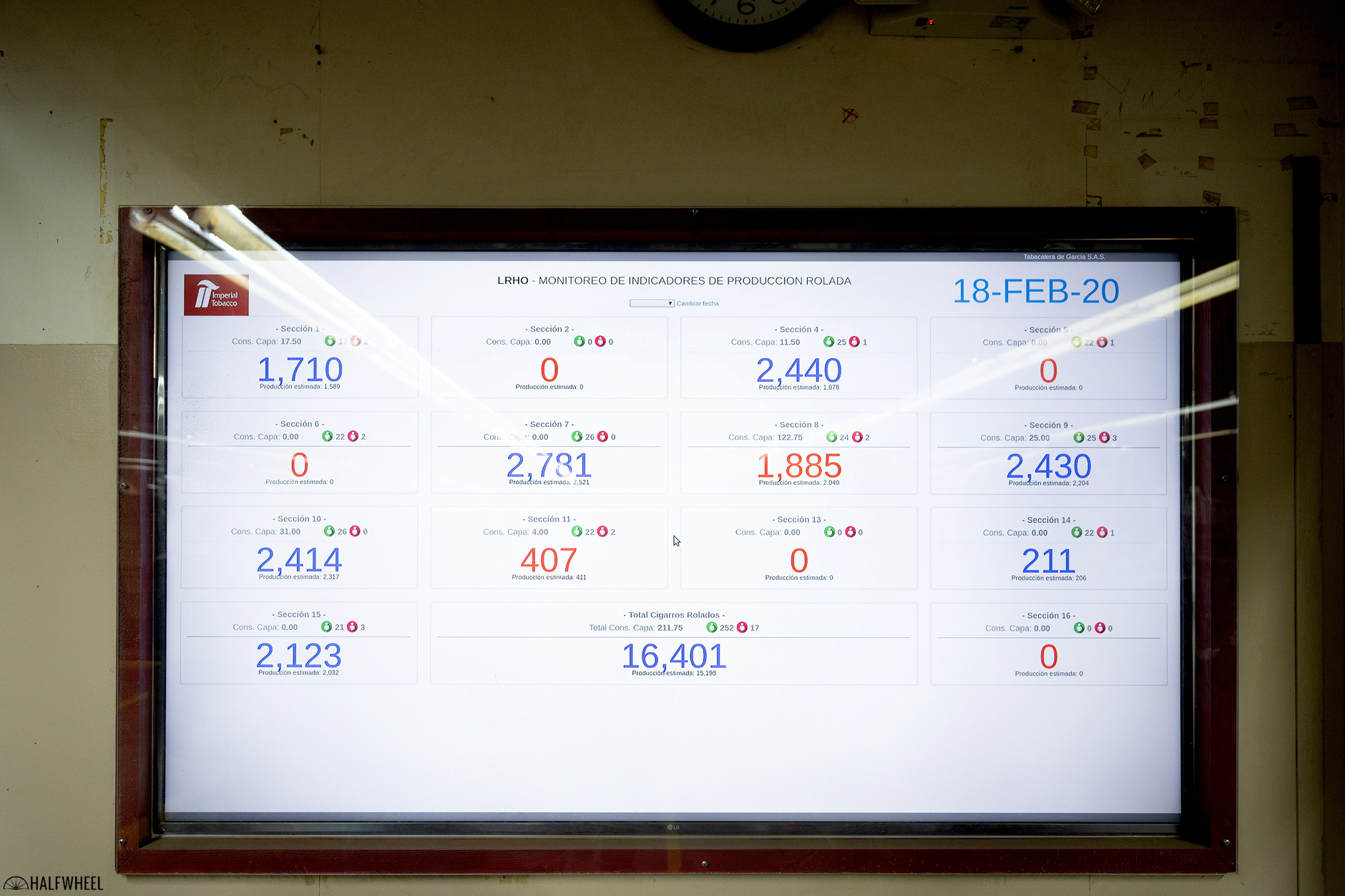The U.S. Food & Drug Administration (FDA) has announced an upcoming proposed rule that would create extensive new requirements for any manufacturing facility that produces tobacco products that are sold in the U.S. Notably, this would include both domestic and foreign manufacturing facilities of products ranging from cigarettes to pipe tobacco to electronic cigarettes to cigars.
In short, the FDA is announcing that it plans to introduce new rules for cigar factories and other places where tobacco and/or vaping products are made. Full stop.
To be clear: this is an announcement about proposed rules; nothing changes today. It’s quite likely that many cigar factories will not, at least initially, be required to adhere to these rules whenever they do go into effect. However, the proposed policies would mark the most significant regulation of cigars and cigar manufacturing by the U.S. government. While most cigar factories will likely be able to comply with these rules, this would likely be too much of a hurdle for some smaller factories, particularly ones with access to limited resources including money and technical expertise.
SO WHAT HAPPENED TODAY?
FDA announced that it’s going to introduce a draft of rules that it intends on eventually, likely after modifications, introducing. This is: rules like this are coming, now is your chance to try to convince us to make them better for you.
In short, nothing changes today or tomorrow or even—most likely—by the end of 2025.
FDA has announced the proposed rule. On Friday, March 10, the proposal will be published in the Federal Register, the U.S. government’s official way of communicating things like this. From there, anyone—including individuals, companies, trade groups, etc.—will have the ability to submit comments for at least 180 days, meaning the comment period wouldn’t end until Sept. 6, 2023. FDA also has the option to extend the comment period, though it cannot reduce the comment window. (There’s also a public hearing scheduled for April 12, 2023.)
After that, FDA must respond to the comments as it crafts a final rule.
WHEN COULD THIS GO INTO EFFECT?
In its proposed rule, FDA has suggested two different initial compliance periods: two years for most manufacturers, six years for what it defines as Small Tobacco Product Manufacturers, any facility with less than 350 employees. Of note, these compliance periods could change.
Both of these timelines would take effect beginning the day the final rule goes into effect, not the day the final rule is announced. It seems incredibly unlikely that this could happen anytime during 2023, meaning that the earliest timeline would suggest that cigar factories would have until sometime in 2026 or 2030 for smaller facilities, though for premium cigar manufacturers that’s heavily dependent on the outcome of the Cigar Association lawsuit. Once again, 2026/2030 would be the earliest likely timeline based on the current proposal.
WHICH FACTORIES WOULD THIS AFFECT?
All of them.
Any factory that makes cigars that are sold in the U.S. would be subject to these requirements per the proposed rule. This means J.C. Newman’s El Reloj factory in Tampa would need to follow the rules, Quesada’s factory in the Dominican Republic would need to follow them, AJ Fernandez’s factories in Nicaragua would need to follow the rules, JRE in Honduras, etc. If you make cigars that are legally sold in the U.S., you would be subject to this proposal.
Not only that, but growers that supply tobacco for cigars that are sold in the U.S. would also need to follow many parts of these rules.
*THE D.C. LAWSUIT COULD PLAY A MAJOR ROLE IN WHO THIS AFFECTS
The big BUT to all of this is the outcome of the Cigar Association of America et al. v. United States Food and Drug Administration et al. lawsuit over “premium cigars.” In short, a nearly seven-year-old lawsuit filed by three cigar trade groups against other FDA regulations remains pending. Given a July 2022 ruling, it seems like the cigar industry is on track to score a major win.
If that happens, it would mean that “premium cigars”—basically any large cigar that isn’t flavored or sweet-tipped—would no longer be subject to FDA regulation, at least in the short term. FDA would have the option to go back and regulate “premium cigars,” but it’s unclear how long that process would take. Until FDA fixes this, “premium cigars” wouldn’t be subject to FDA regulations.
It’s likely that a factory like Padrón’s, which produces only cigars that would be defined as “premium,” likely wouldn’t be subject to any of what’s proposed, at least until FDA gets “premium cigars” regulated. That said, any factory that produces a single cigar that isn’t defined as a “premium cigar” would be subject to at least some of the rules.
It should be noted FDA’s proposal doesn’t appear to take into account the “premium cigar” litigation and likely outcome. The word “premium” does not appear once in the document. That’s why I say “some of the rules.” For example, I think a factory like La Gran Fábrica Drew Estate, which produces both non-flavored and flavored cigars, would be required to adhere to the rules regarding the facility, its employees, etc. but I don’t think that some of the specific requirements regarding procedures and record keeping related to a “premium cigar” could be required if Mehta rules the way he has indicated he will.
WHAT IS PART OF THIS PROPOSED RULE?
The document published today is 296 pages, so there’s a lot of stuff mentioned.
As a general overview:
- Factories would need to create plans of how they operate and manufacture products and then follow said plans — For the most part, FDA gives guidance about types of procedural plans a factory would need to have but it isn’t going to create specific documents for the factories to follow. Instead, the factory would be required to come up with the plan that it adheres to for the products that it makes and then would be expected to actually follow the plan. The factories would be required to produce documentation that they are following the plans and would be expected to keep those records for FDA inspection.
- Today’s 296-page document is a menu of a la carte options on the table — There are hundreds of different proposed rules within this document. FDA is soliciting feedback about how necessary each one is, whether it should modify a specific proposed rule, etc. I don’t think FDA thinks it’s going to enact all of this, but it is soliciting feedback about each potential option.
- Even if a rule gets included, it doesn’t mean a factory must adhere to it — FDA acknowledges that a one-size-fits-all approach isn’t going to work given the wide range of manufacturing facilities and products that this covers. The way e-cigarette liquid is produced differs from how a cigar is bunched. Therefore, FDA’s approach seems to be if you are engaging in this type of process, you need to create a plan of action, etc. Conversely, if you aren’t doing this as part of your manufacturing process, you probably don’t need to start and therefore don’t need a plan. A good example of this would be the cleanliness of the lab where pH testing of vape liquid occurs. Given that a cigar company isn’t testing the pH levels of the wrapper, it wouldn’t need to worry about having a clean and sterile laboratory to do so.
The most important acronym here is MMR, Master Manufacturing Record. In short, FDA wants manufacturers to create procedures and records of how its facilities operate. This includes pretty much everything from who is in charge of quality control and how quality control is done to how a company vets and measures the performances of its suppliers. How a facility is cleaned, how complaints are handled, what happens to rejected products and a lot more are all part of this process. Again, FDA wants these facilities to create documentation of how the procedures should work and then further documentation that proves to the agency how these facilities are doing it.
Today’s document breaks it down into eight different categories:
- General Provisions
- Management System Requirements
- Buildings, Facilities, and Equipment
- Design and Development Controls
- Process Controls
- Packaging and Labeling Controls
- Handling, Storage, and Distribution
- Record Keeping and Document Controls
Here are some examples of what FDA is proposing. I should be clear, these aren’t what I think are the most important or impactful, just some things that stood out and will give you some idea of what FDA is proposing.
- Organizational Charts — Factories would be required to have organizational charts that show who is responsible for producing, maintaining and overseeing the various processes and documentation that FDA is going to require. Yes, you would need to have a plan about who is in charge of the plan.
- Worker Cleanliness — Factories would be required to create standards for “cleanliness, personal practices, and apparel” of employees. This could range from using gloves to banning jewelry or headphones while working, hand washing procedures, etc. Furthermore, there would need to be documentation showing a process for daily checks of these practices. I suspect that FDA won’t be thrilled to learn that some factories let the rollers smoke cigars while making them.
- Building Cleanliness & Maintenance — Factories would be required to have regular cleaning protocols for both cleanliness in general and specifically for insects and other living things that could contaminate tobacco. Of note, FDA “acknowledges that tobacco is an agricultural crop and, therefore, there is the likelihood that there will be a certain level of animals and pests (such as tobacco beetles) in the tobacco.” Manufacturers would be expected to come up with acceptable thresholds for these and ensure that their facilities are operating within these thresholds and have plans in place for when the thresholds are exceeded. There would also need to be cleaning plans for all the equipment used in the manufacturing process, presumably including the chavetas used to cut wrappers and even the tables where the roller sits.
- Environmental Conditions — Manufacturers would be required to ensure their buildings are not in areas of ground-level contamination, subject to air pollution or other factors that could contaminate the products. This could extend to HVAC protocols, humidity monitoring, air filtering, etc.
- Manufacturing Standards — This is arguably the most impactful part of this process. Manufacturers would be required to develop documentation that outlines how an individual product is produced. This would involve not only listing the steps taken to produce the product but also what ingredients are used, how much a specific ingredient is used and when the finished products are created. This means FDA would expect that a manufacturer will have documentation about every product it makes and that the manufacturer will have a plan in place to make sure that the steps and ingredient ratios are being followed from start to finish. For cigar companies who previously satisfied an FDA ingredient listing requirement by saying their cigars were made with “dark air cured tobacco,” it seems likely that these records would need to be far more detailed down to the percentage of a type of tobacco used in the filler.
- Handling Complaints & Errors — Factories would be required to have a procedure for dealing with any breaches of protocol in the process or even consumer complaints about the products not meeting product standards. This would mean that any issues would need to be documented, there would need to be a procedure about how to address them and factories would need to have paperwork that shows how they were responded to. This could include a consumer complaint about finding a piece of plastic inside of a cigar or something like what happens if a bale of tobacco is rejected due to bug infestation.
- Risks — A manufacturer would need to produce documentation about “foreseeable risks” associated with a product. This could range from the use of pesticides on tobacco to the development of mold in finished cigars. Beyond the obvious, FDA expects manufacturers to consider anything that might lead a product to be deemed as a “nonconforming product,” FDA’s term for something that doesn’t meet standards. Of note, FDA gives the following example: a risk associated with product design is a dissolvable tobacco product whose size and shape resembles candy, resulting in potential misuse by and harm to children.
- Supplier Qualifications — Manufacturers would be required to create procedures to evaluate the effectiveness of their suppliers, such as tobacco growers. This would mean documentation that establishes what a manufacturer considers to be an acceptable service, such as supplying a certain type of tobacco. Manufacturers would need to document how effectively a supplier meets these requirements and would be expected to produce supplier evaluation documentation. This would also apply to how a manufacturer chooses a new supplier, i.e., it would be expected to evaluate how well the supplier has performed in the past.
- Unique Identifiers — In addition, a tobacco manufacturer would need to create a unique identifier—i.e some sort of code—that identifies the products it gets from its suppliers. This would be documented so that in the event there were issues, the manufacturer has the ability to trace whether the issues are tied to a specific supplier or batch and therefore can inspect other finished products that use materials from that supplier or batch to determine if there are more issues. FDA says it isn’t proposing a uniform number system and instead will let each manufacturer create its own internal system of unique identifiers. Furthermore, it does not seem that the manufacturers would be required to publish the unique identifiers to the public.
- Packaging — Manufacturers would be required to ensure that all of the packaging it uses meet FDA requirements. It’s not entirely clear how this would apply to cigars given previous attempts at regulating packaging. That said, it seems likely that manufacturers would be required to put a production date on every product sold.
- FDA Inspections — Today’s proposal would mean that FDA inspectors would show up to cigar factories to verify the processes are being done properly. Manufacturing facilities would be required to store the records for all of the processes for a fixed amount of time, similar to how entities are required to keep receipts for tax purposes.
WHAT DOES IT SAY SPECIFICALLY ABOUT CIGARS?
Cigars are not the document’s focus, but they are mentioned in some detail.
For example, FDA expects that cigar factories will be able to explain how much filler goes inside of a Churchill:
Proposed § 1120.66(c) would require that the production process procedures include certain additional requirements, if applicable. Under proposed § 1120.66(c)(1), if a production process includes a manual method or process, the production process procedures would be required to describe the manual method or process in sufficient detail to ensure that the tobacco product meets established specifications and include, if applicable, the criteria for workmanship using a standard or approved model sample. An actual or diagrammatic representation of a model sample could show the design and construction of a tobacco product. For example, a hand-rolled cigar could be represented by a model sample that defines the type and size of tobacco leaf to be used for the wrapper, the type and amount of filler tobacco to be used, the brand label to be applied, and the size/shape/length/diameter of the finished, rolled cigar. Similarly, a documented standard could establish specific length, gauge width, and shapes of certain types of standardized cigars (e.g., Corona, Churchill, and Panetela) (Ref. 131).
It also mentions a scenario where a package of cigars doesn’t meet the established weight standards set by a manufacturer:
A manufacturer would also have to perform an evaluation under proposed § 1120.78(a)(1) to determine whether tobacco product is appropriate for rework. For example, if finished packages of cigars are rejected for being the incorrect weight, a manufacturer would have to evaluate the nonconforming product to determine if it is appropriate for rework. The evaluation could determine that the nonconformity is due to the package having four cigars instead of the required five cigars, and that the product can undergo repackaging to address the nonconformity and meet the specifications and other requirements in the MMR for the subsequently manufactured product. In some cases, an evaluation may show that a product is not appropriate for rework. For example, an evaluation of returned tobacco product may determine that it is not appropriate for rework because further manufacturing cannot remove a contaminant, such as an insecticide (e.g., Ref. 148).
It also said cigars could be dangerous:
Examples of inherent risks of cigars include oral, laryngeal, pharyngeal, and esophageal cancers, as well as lung cancer and heart disease (Ref. 15).
THIS WILL AFFECT HOW CIGARS ARE MADE BUT NOT THE CIGARS THEMSELVES
While the cigars might not change all that much, I still find this to be a massive shift in the regulation of cigars.
I consider this to be a “monumental” change in how cigars are regulated, though I’m not sure how much it will affect the cigars you smoke. There are a number of bad scenarios where FDA shuts down a factory or stops shipments as a result of the authority it is trying to implement, but I think the largest change is that it greatly alters the relationship FDA has with products that it has already approved.
Currently, FDA retains the authority to regulate an approved product and companies are required to inform FDA if they make changes to the product or even if the packaging. But if the agency approved a product and then the company didn’t make changes, it’s unlikely that the agency would have much interaction with the company about that product after it was approved.
Today’s announcement creates a world where that is dramatically altered and where the onus becomes a daily chore for each factory. Sure, FDA may not be physically in a factory on a daily basis, but it will be there in spirit. Overfilled cigars would no longer just be something that might lead to a bad review, a disappointed consumer or reduced profits, it’s now something that would need to be documented for a potential FDA inspection. Buying tobacco from a new vendor will require the factory to go through a procedure to determine whether the vendor meets the factory’s standards, albeit standards that are explicitly in place (solely) for FDA. A factory will still get to decide how it creates the bunch of filler tobacco, but it will have to document anytime it chooses to change that process, just in case the FDA has any questions. That’s a radical change from the world that exists today, one that most of the industry can prosper in, but that sounds like a different world than ones I’ve witnessed at most cigar factories.
The following is analysis of today’s announcement. I’m neither an attorney nor any sort of licensed FDA expert, but here are some thoughts about what this might mean and other things to think about.
1. THIS RULE EXISTS TO MAKE FDA’S LIFE EASIER
The way I read this document, FDA is trying to make its life a lot easier in three major ways.
1. If companies follow rules, this will weed out bad actors — A big if on the following the rules part. However, in a utopia where all manufacturing facilities either adhere to these standards or shut down, it should remove a lot of the questionable and dangerous behavior that some companies are engaging in, especially in the vaping world.
2. When something does go wrong, FDA can quickly get documentation — If all of a sudden people start getting sick after smoking a certain type of cigar due to bleach accidentally getting in contact with some binder, FDA will have a much easier time trying to investigate the specific issue. Currently, it would have no paperwork about how a specific factory is making sure bleach doesn’t get in contact with tobacco. This means when the agency gets called in front of Congress to get grilled by a senator for six minutes, it will have something more to say than, “we’re looking into it.”
3. It will make it easier to blame the companies and not the regulations — FDA will then be able to point to where the specific parts of the company’s manufacturing plans and procedures broke down. In the world of vaping, this will be particularly useful because it can say, “hey, if this company was operating per our rules and not illegally, then none of this wouldn’t have ever happened.”
2. THIS IS NOT GOOD FOR THE CIGAR INDUSTRY
More than 15 years ago, Marvin Samel, co-founder of Drew Estate, relocated to Washington, D.C. as part of Drew Estate’s efforts to get heavily involved in the regulatory process. He spent two years focusing on the upcoming regulatory issues and trying to get the premium cigar industry more involved in what was then the threat of FDA regulating cigars. Shortly before he left the cigar industry, we were chatting and he mentioned to me the most poignant thing he learned as part of this experience: all the experts say that the first set of regulations isn’t what kills a company, it’s always the second one.
Up until this point, FDA’s regulations have been tied to the products that are sold and not—outside of domestic manufacturers—the places where they are made. Today’s proposal would change all of that, forever. None of what’s being proposed in a vacuum sounds all that bad, but this—to my knowledge—would mark the first time that FDA will implement rules for how a cigar factory in a foreign country operates.
This is the door opening for any number of things to follow.
While I am in favor of having hygiene policies for the people that make cigars, I’m very fearful of what rounds two, three and seven of these types of policies look like and I understand that barring some relief from a court, once the door is opened, it will only get worse.
To those that will bemoan the loss of the “artisanal” aspects of cigar making, I think your concerns aren’t present here, at least not initially. Nothing mentioned today would prevent Arturo Fuente from making OpusX Footballs or Drew Estate from using scissors to cut the filler tobacco for Dirty Rats, though Drew Estate would need a scissor cleaning program, but it would reduce the potential for the next Football or Dirty Rat to be created. Any change would be more complicated. That’s probably not great for innovation.
I will also acknowledge that regulating a cigar factory in a foreign country inherently increases the risks that one day FDA’s policies might be so stringent that the agency ends up blurring the lines between making cigars and cigarettes. That said, it’s very important to understand that none of what’s included in the 296 pages suggests any of that, at least not today.
3. IF YOU ARE SURPRISED BY THIS, YOU HAVEN’T BEEN PAYING ATTENTION
I don’t even think it’s fair to say that FDA has “hinted” at this action. FDA has repeatedly said it was interested in doing this. Furthermore, this is how it regulates other industries like food and medicine, a lot of these practices are inevitably part of cigarette and smokeless tobacco manufacturing, etc.
When I saw FDA’s press release show up earlier today, I certainly wasn’t caught offguard. It was just a matter of time.
4. THE CIGAR ASSOCIATION LAWSUIT LOOKS MORE AND MORE IMPORTANT
As noted above, there’s a likely chance that factories that are not making machine-made or flavored cigars will not be subject to these rules, at least not for a while. We still haven’t reached the conclusion of that lawsuit, nor do we know how aggressive FDA will be in trying to correct its errors and regulate premium cigars. But barring any surprise reversals from Judge Mehta—or a successful appeal from the Department of Justice—it seems likely that “premium cigars” won’t be subject to any FDA regulation in the immediate future.
I am of the opinion that it won’t be permanent relief, but no one has any idea as to how long the relief will last.
I am confident that if Mehta continues his line of thinking from July 2022, at the very least, the Cigar Association lawsuit will have bought the premium-only manufacturers more of the most finite and fickle thing in life: time.
5. A VICTORY IN CIGAR ASSOCIATION ONLY MATTERS IF THE INDUSTRY USES THE TIME IT BOUGHT TO ACTUALLY DO SOMETHING
I am very concerned that much of the industry’s reactions to the Cigar Association lawsuit will be: cool we won, fuck FDA, now I don’t need to worry about this ever again.
That is the wrong approach.
I don’t see a scenario where FDA completely gives up on regulating “premium cigars.” It might move it down the order of priority, but it’s important to acknowledge that FDA can try to do multiple things at once. In the last three weeks FDA’s Center for Tobacco Products has:
- Announced tobacco product manufacturing standards (what you are reading about)
- Said that it hopes to have final rules regarding banning menthol cigarettes and flavored cigars announced this fall
- Is beginning the process of internal changes following a third-party review last year
All three of these are major actions that require a lot of resources. It certainly isn’t waiting around to make new announcements until after it finishes the things left on its to-do list.
If it loses the ability to regulate “premium cigars,” FDA will be back to do it at some later date. I really hope the cigar industry understands that the above is somewhere between the most likely scenario and the only scenario. The idea that FDA is simply going to focus on everything else before it bothers with premium cigars again is not grounded in reality.
The cigar industry needs to use the time it will have bought itself to:
- Get more companies involved with the legislative efforts on a daily basis
- Rebuild the depleted war chests
- Begin to voluntarily enact some of what FDA’s manufacturing standards
If it doesn’t, the end result is going to be sad. You shouldn’t waste borrowed time.
6. THE BIG COMPANIES ARE GOING TO HAVE AN OUTSIZED ROLE IN WHATEVER DIALOGUE EXISTS WITH FDA ABOUT THIS
There are several layers to this.
1. Many big cigar companies are already doing a lot of what is being proposed — Whether because of ISO compliance due to corporate structure, efficiency protocols, contracts with other companies that require this, etc.—companies like Altadis U.S.A., General Cigar Co., Drew Estate, Oliva, J.C. Newman, Arturo Fuente and others are already doing a lot of what is being discussed here. This gives them an immense advantage—and they already have many unrelated advantages—compared to most small or medium-sized cigar factories. They can show FDA examples of procedures that are already working in a cigar factory, even if those procedures are unrealistic for smaller facilities.
2. If the Cigar Association lawsuit is decided favorably and before these rules go into effect, many of the “premium cigar” companies might lose interest here — If you are Drew Estate, you either choose to prepare and comply with what FDA is proposing today or you stop making flavored cigars. But if you aren’t making flavored cigars, you might not be subject to any of the rules in the foreseeable future and might not be all that motivated to interact with FDA over the next 180 days.
3. Compliance is big business — The tobacco industry’s history—like others—is rife with examples of companies using regulation to beat their competition. This is capitalism and it’s one of the advantages you get when your company reaches a certain size. I don’t know why any of the big companies would go out of their way to help the little guys at the expense of their own business. It might not be an absolute zero-sum game, but if a consumer can no longer buy one of your competitor’s product because that company no longer exist, it inevitably increases the chance that you capture that sale just by process of elimination.
7. WOULD YOU REALLY ACT ANY DIFFERENTLY?
If you installed energy-efficient light bulbs in your home and then the local government decided that it would require every house to have energy-efficient light bulbs beginning in 2025, would you really be all that motivated to go lobby against the proposal? I doubt that’s where your energy goes.
I get that using government regulations to crush the competition sounds shitty, but this is business, man.
8. TOBACCO SUPPLIERS WILL BE SUBJECT TO THESE RULES
Even if Judge Mehta rules in favor of the cigar side, a lot of the industry will take part in this process because of the interconnected nature of the cigar business and because some of the most connected companies will be subject to these rules. Perhaps nowhere is this more true than with the tobacco suppliers.
Companies like AGANORSA, ASP, Oliva Tobacco Co., Plasencia, and Universal are all going to have to adhere to these standards because they are going to sell leaves to factories that are subject to the rules. I imagine that many of them are already implementing a lot of the procedures and record-keeping for any number of reasons. It’s also possible that some of these companies will no longer sell to a factory that is not compliant, though I bet middlemen will be used to help keep some of these relationships going.
9. THERE WILL LIKELY BE LAWSUITS, BUT A LOT OF BIG COMPANIES AREN’T GOING TO BE PART OF THEM
I would suspect big cigar companies that might support FDA’s proposal will just not comment. Given the cigar industry’s outrage when Altria—the parent company of Nat Sherman—called for regulation lite in 2018, I don’t think any of the aforementioned companies are going to say anything publicly in support of this.
That said, the BIG tobacco companies, i.e. the legacy cigarette companies, will most likely be in favor of this move because it will help their products in the e-cigarette categories. Last month Reynolds American, née R.J. Reynolds, asked FDA to start cracking down on illegal vape sales. Not because Reynolds cares about illegal vape sales but because Reynolds would like to sell more of its FDA-compliant vape products. For companies like Altria, Reynolds and their contemporaries—regulation is an expected part of business and one those companies pride themselves on navigating well.
It only takes one company (or person) to file a lawsuit and the barrier to entry to filing a lawsuit is not high. Someone is going to sue about this, but I would be skeptical that there will be many billion-dollar companies willing to fund a lawsuit over this proposal, particularly since the big companies are probably already doing much of what FDA has proposed in today’s announcement.
10. HOW MUCH DOES FDA KNOW ABOUT WHAT PREMIUM CIGAR FACTORIES LOOK LIKE?
FDA has toured cigar factories, but I wonder if the agency has visited or seen what a small factory in Tamboril or Estelí looks like. Does it realize that some of these factories are open-air? Does it have any idea about the complications with power in general, let alone the idea of having HVAC throughout an entire facility?
I’m guessing its response would be: no, but these things will be required going forward, so problem solved.
There are some areas—the general approach towards flexibility, acknowledgment of tobacco beetles, etc.—that show it understands some of this, but I did find other parts a bit funny given the reality of what many cigar factories look like. To be clear, some of those open-air factories produce excellent cigars.
11. “GRANDFATHERED” STATUS IS IRRELEVANT
There’s some stuff about the product design standards that would make a difference about when a product was first commercialized, though I’m not sure how much of that would apply to cigars, and again, Judge Mehta’s ruling probably affects this as well.
In case you are wondering, today’s announcement would regulate the factories, not the products per se. So it doesn’t matter if the products are grandfathered or whatever—if a facility is making a product that FDA regulates in the U.S., it would need to adhere to these rules.
12. WHAT ABOUT CUBAN CIGARS?
Similarly, Cuban cigar factories would be unaffected by this as it is illegal to sell or import Cuban cigars into the U.S.
13. SOME SMALL FACTORIES WILL JUST NOT COMPLY
I can assure you that if these rules go into effect that there will be some small factories that will just choose to operate illegally due to ignorance or under the guise that it’s better to ask for forgiveness than permission.
14. DOES THIS MEAN WE WILL GET TO FIND OUT THE ACTUAL RECIPE FOR BLENDS?
Probably not.
FDA has established practices in place for things like medicines and other tobacco products that are designed to ensure a company’s trade secrets aren’t accessed by their competitors.
15. THIS WILL PROBABLY IMPROVE THE QUALITY OF THE MEDIAN CIGAR, BUT IT WILL EVENTUALLY HURT CREATIVITY
If you are here to oppose better health and cleanliness standards or operational competency, cool. I get that some people would prefer these standards don’t come from the government, though it’s worth acknowledging this is about as much of a “happy medium” as the government could apply: the company creates the protocol, the company adheres to said protocol, the government asks questions when it wants, and if the government is unhappy with the answers or the products, then it can prevent these products from being sold.
I do think this will help make the median cigar better. It will force some factories that are not doing much of any of these protocols to start doing them. It will inevitably create a lot of excess costs that will be passed down to consumers, but I’ve yet to see much in this document that makes me think these regulations would make a typical cigar smoke worse. I’m actually led to believe it would help clean up—figuratively and literally—a lot of the processes in some factories.
That said, I do think it’s going to reduce creativity as it will require companies to produce more documentation each and every time a company wants to try something new. This is not just limited to a unique size or a new type of cigar wrapper grown in Oregon; it would also apply to how existing tobacco is grown or processed, how cigars are bunched or aged, etc. All of these things would seemingly dissuade some of the creativity that we like to celebrate in this industry.
16. THE HOUSE IS ON FIRE, SO LET’S WATER THE LAWN
Laws are simply suggestions until they are enforced.
In a vacuum, I’m not opposed to many of the individual procedures mentioned here. I also think that government shouldn’t leave it solely up to the companies to protect consumers and that is precisely why I find all of this quite “rich.”
Today’s announcement does nothing to address the most common complaints about the shortcomings of FDA’s regulation of tobacco and vaping products—and that’s because today’s announcement only goes will affect people that are willing to follow the rules themselves. The aforementioned external review of the Center for Tobacco Products made it clear that FDA does not effectively enforce its existing regulations. It is too slow, FDA’s own procedures are antiquated, internal agency politics and more were given as reasons why it is failing, but the report made clear when it comes to the most pressing issue for the public, Congress, FDA itself and even industry—illegal vape usage—FDA has not met the challenge very well.
Here’s how that external review explained it:
In addition, once a product is on the market illegally, a company marketing the product has every incentive to delay FDA action that would stop its sale. FDA has stated that “all new tobacco products on the market without the statutorily required premarket authorization are marketed unlawfully and are subject to enforcement action at FDA’s discretion…” The Agency has also announced that it is prioritizing enforcement against ENDS products, for example, that are illegally marketed in the U.S. and not the subject of a pending premarket application. Because companies have seen that FDA is not taking action for those products for which an application is pending, some companies have continued to market their products, in some cases reportedly submitting deficient applications or filing frivolous appeals to further delay enforcement action. Some companies have engaged in other techniques to evade enforcement. The Panel heard that numerous companies have, for example, changed their company name after receiving a warning letter and continue to operate and sell illegal products.
How does today’s announcement reduce the number of illegal flavored vape cartridges?
How does this keep vape products out of underage hands?
How does this affect the safety risks of THC vape cartridges?
It won’t do a damn thing about any of that.
Currently, there are endless amounts of illegal tobacco and vaping products sold in the U.S. that are either directly under FDA’s regulatory purview or either seem like they should be. In the case of the third example, FDA doesn’t have the authority to regulate marijuana products since the federal government’s position on the matter is that marijuana is illegal. In the case of the first two, those are very real problems that create constant negative headlines and headaches for FDA, and none of what is proposed in this document would do anything to help that.
There’s that big if I mentioned earlier.
If companies adhere to the rules, then the rules will help to…
The obvious problem is that some companies aren’t adhering to the current set of rules and FDA hasn’t been all that great at going after the bad actors effectively. Today’s announcement will create more paperwork and complications only for the people that are willing to follow the rules. I’d argue that’s not the group of people FDA should be focusing on, at least not until it’s done an adequate job going after the bad actors. While the agency might be walking and chewing gum when it comes to making announcements, it hasn’t shown it can get through its own paperwork on time, let alone do effective enforcement to satisfy the demands of the public. Until that happens, this seems like a very misguided use of resources.
Update — Looks like there were two #10s, that would be 16 thoughts, not 15.
Update (March 14, 2023) — Clarified that it’s four years from the two year effective date for smaller manufacturers.











